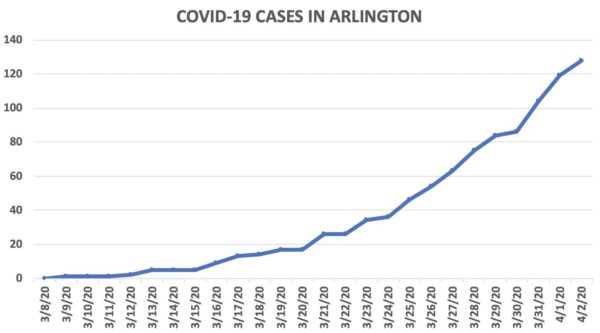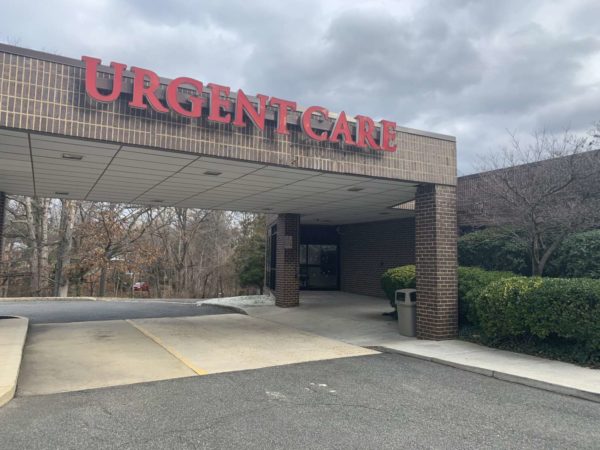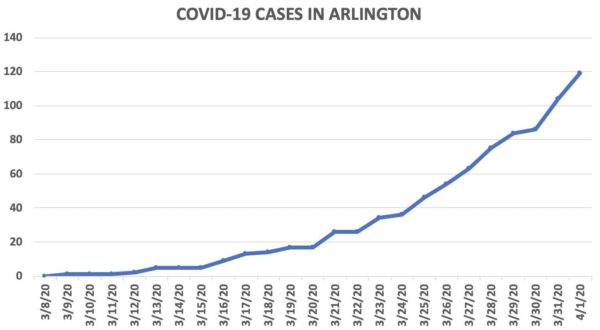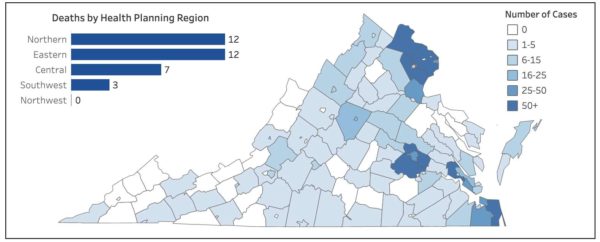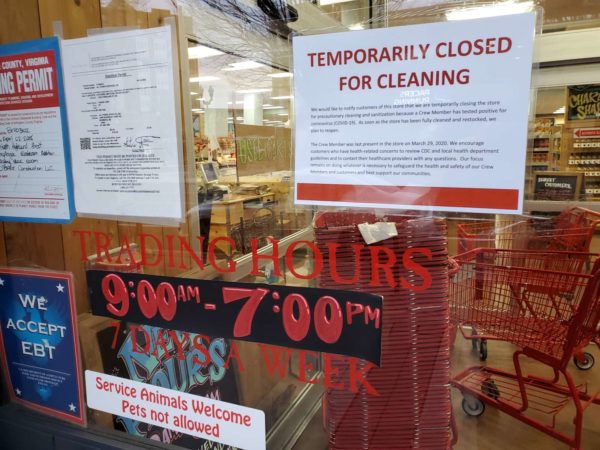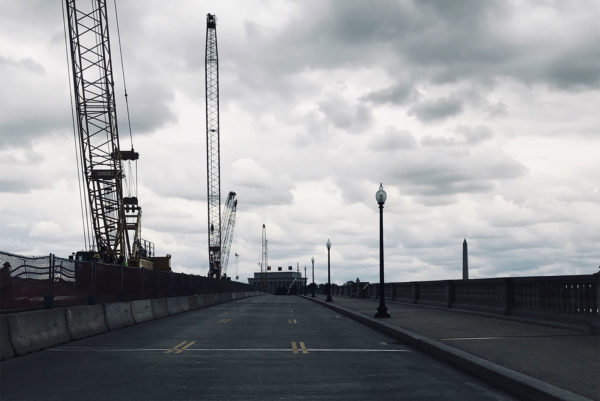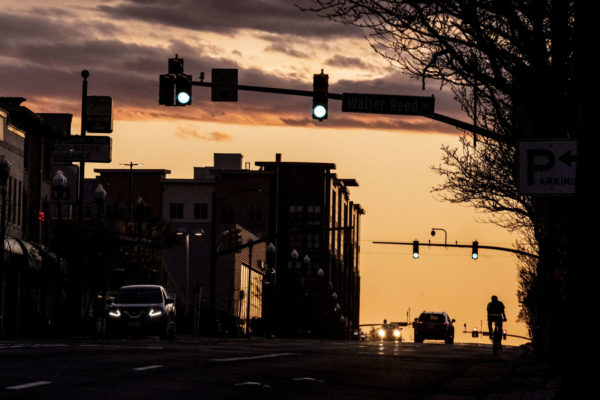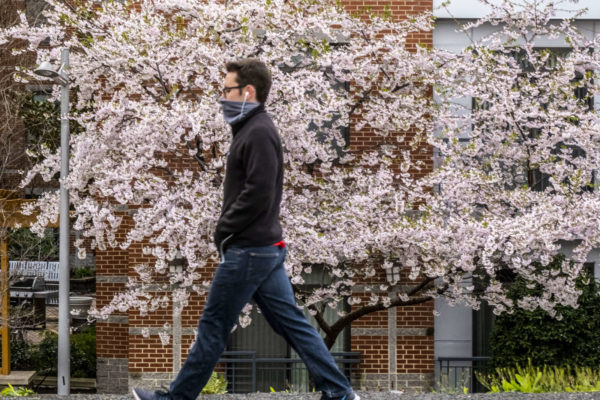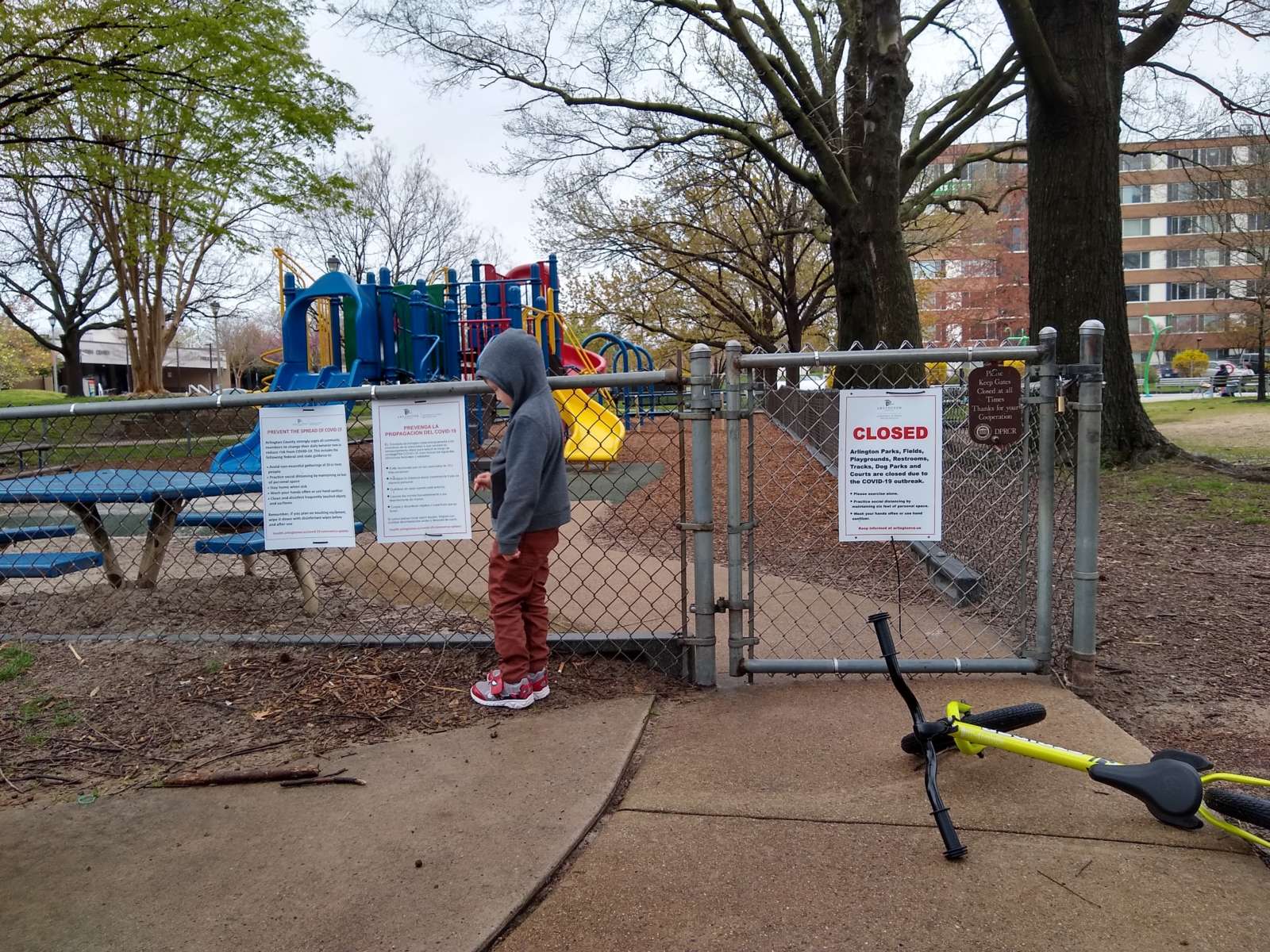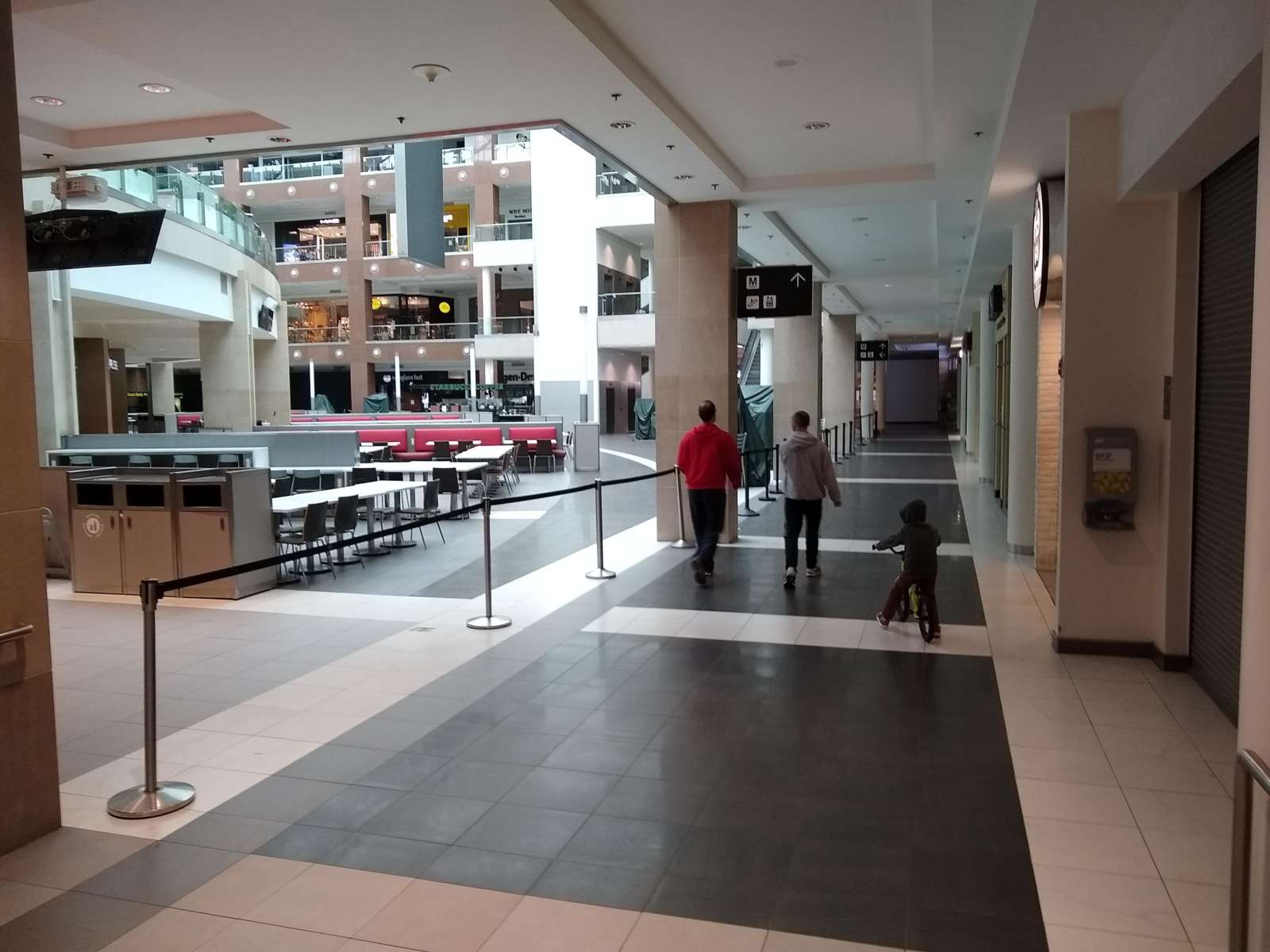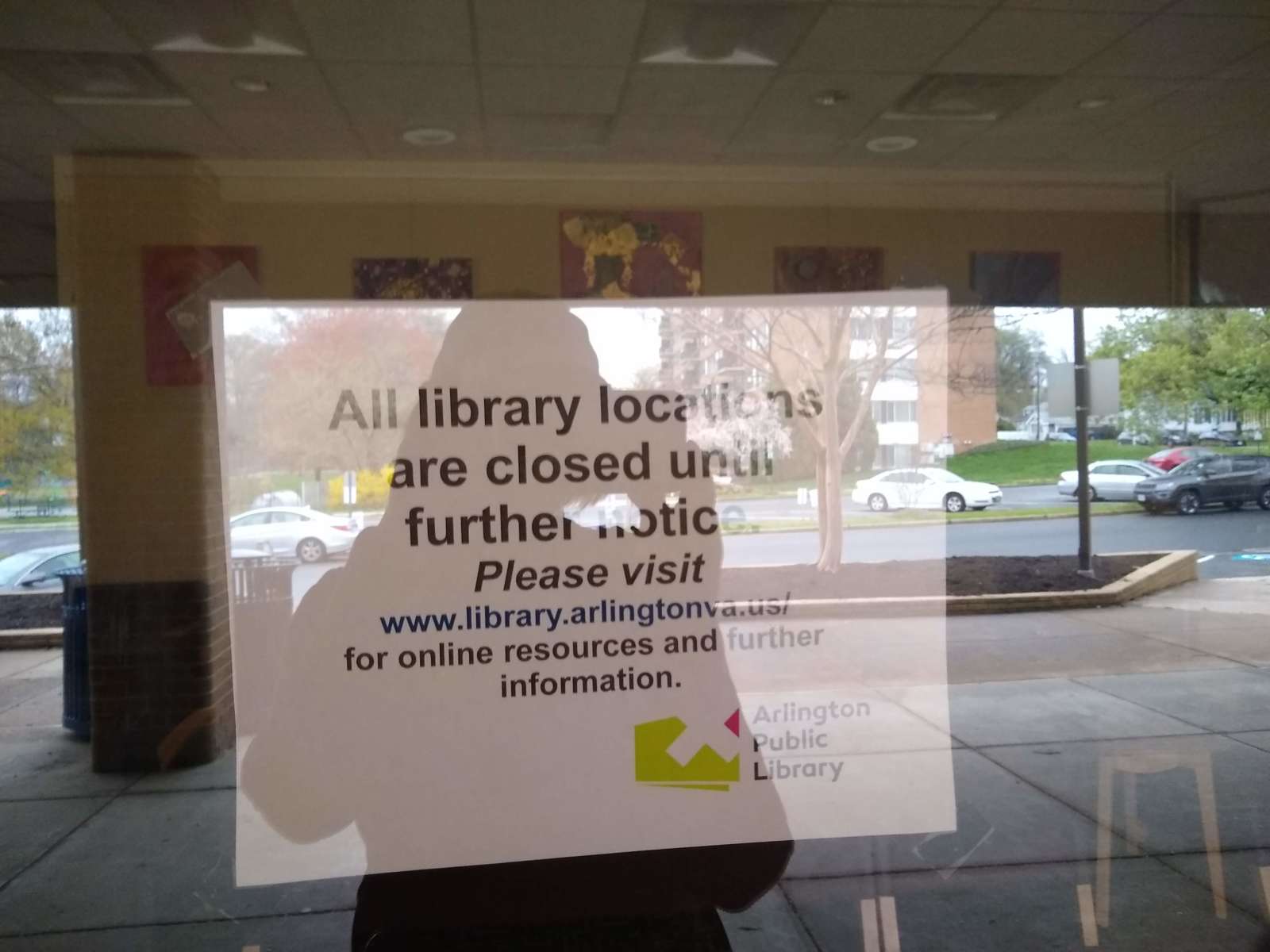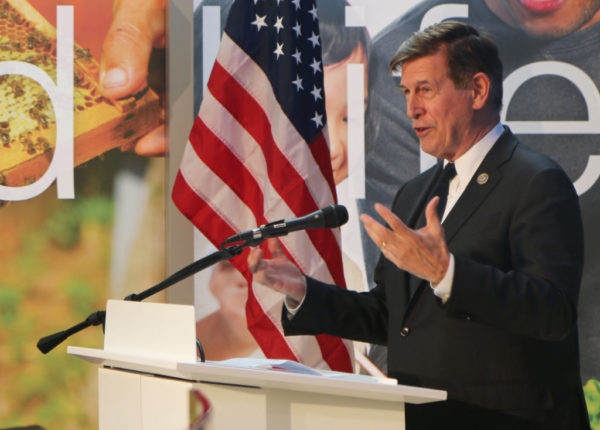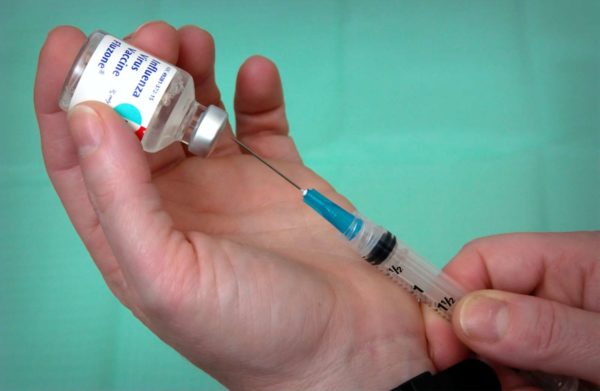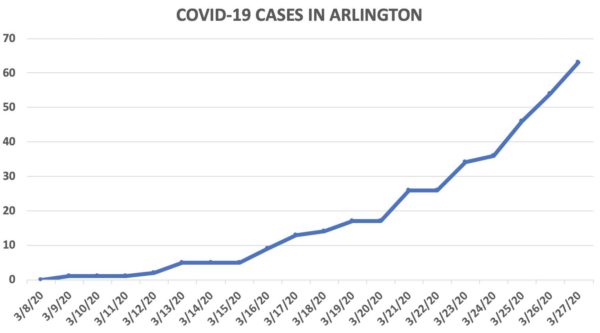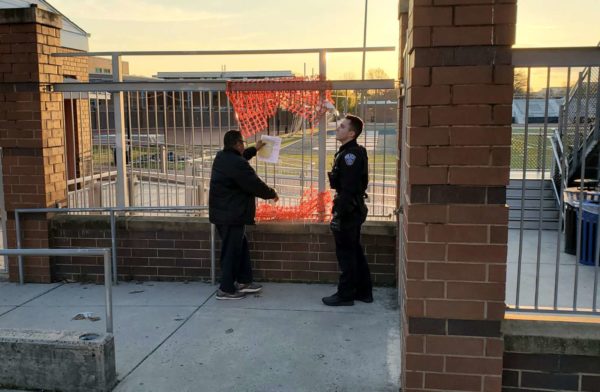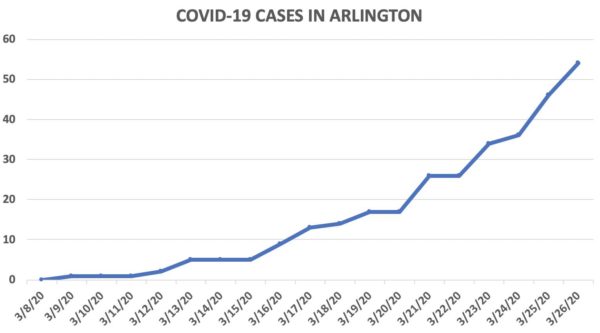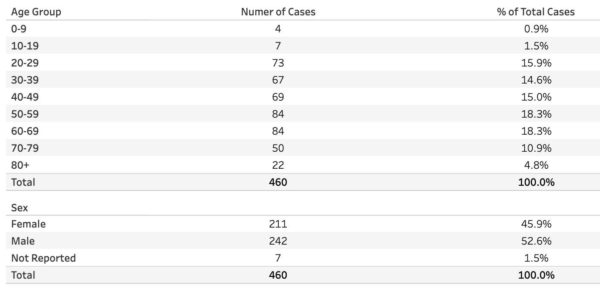There are now 128 known coronavirus cases in Arlington, the second-highest total among Virginia localities.
Only neighboring Fairfax County, with 328 cases, has more. That’s according to the latest Virginia Dept. of Health data, which today (Thursday) reported 1,706 cases statewide, along with 246 hospitalizations and 41 deaths.
Virginia Gov. Ralph Northam said yesterday that the Commonwealth’s projections anticipate “a surge in the number of people who test positive between late April and late May.” With the worse yet to come — and coronavirus-related medical dispatches seemingly on the rise in Arlington — there is an increasing urgency to have plans in place in Arlington and across the state to deal with the potential for overflowing hospitals.
Officials, however, are staying mum on many of the details.
It was reported yesterday that the former ExxonMobil campus in Fairfax County, now owned by Inova Health System, “is one of three sites the state has identified for alternative care facilities if hospitals become overcrowded due to the coronavirus pandemic.” George Mason University’s main campus in Fairfax could also be used in a later stage of the response.
The Richmond Times-Dispatch reported over the weekend that other aspects of the planning are “mostly under wraps as some projections anticipate a shortage of intensive care beds, tens of thousands of sickened Virginians needing hospitalization and a climbing death toll in the coming months.”
“The state has also shirked repeated questions about how it will approach offering guidance to hospitals on criteria for rationing health care should the need outstrip the supply, as it did in Italy and as it threatens to in New York,” the paper said.
In Arlington, we asked the county’s Dept. of Human Services about the potential use of hotels — or even the former Virginia Hospital Center auxiliary campus on Carlin Springs Road, now owned by Arlington County and slated for demolition — as possible COVID-19 patient overflow or quarantine sites.
A spokesman did not provide specifics, only saying last week that the county was “exploring options.”
“Public safety and public health is our top priority. Our dedicated staff continues to work with local, regional and state partners to explore options for quarantine, isolation, and other measures to support an unprecedented response to COVID-19,” said Kurt Larrick. “We are following plans and protocols we have previously developed, as well as the actions and progress of communities across the country, including those in New York, Louisiana, California and elsewhere, and prudently planning to protect the health and safety of all our community.”
Billy Bayne, owner of the Highlander Motel in Clarendon, told ARLnow that the county has asked about possible use of the hotel, which has separate outdoor entrances and HVAC units for each room.
Arlington is “preparing for the worst” and looked at the Highlander as an “alternate site,” said Bayne, who also owns a pair of restaurants in Crystal City. He noted that there’s plenty of availability — he only had five paying guests to start the week.
In addition to details about the county’s plans, it has also been difficult to gather more information about COVID-19 cases in Arlington beyond the daily numbers provided by the state health department.
Virginia Hospital Center, which has implemented strict visitation policies as part of its COVID-19 response, declined to answer questions from ARLnow about how many confirmed and suspected cases it’s currently treating.
“Virginia Hospital Center is committed to protecting the privacy of our patients and complies with all applicable laws, including the Health Insurance Portability and Accountability Act, or HIPAA. As always, the Hospital does not share patient-specific information without prior authorization,” said Maryanne Boster, the hospital’s Director of Corporate Communications. “We are collaborating with public health authorities, including the CDC and local public health authorities, as appropriate. These authorities are best-positioned to provide public health information.”


